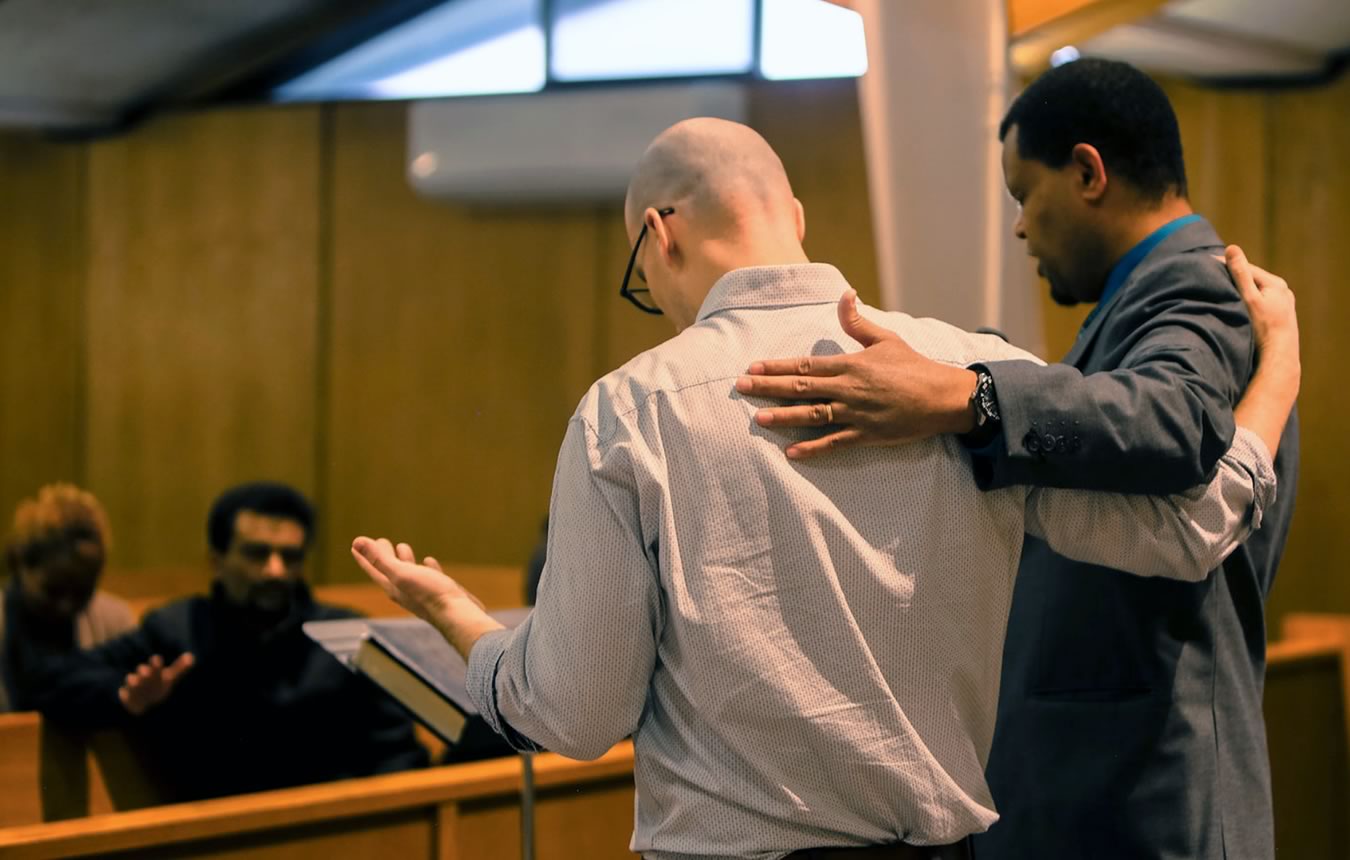
Concordia Seminary Newsroom
Pastor Pursues Calling that Fits His Gift Set and Heart

“He loves life and the One who created it.”
That’s the last line on Rev. Ben Griffin’s online bio and one that succinctly describes the passion of Griffin, a 2003 Concordia Seminary graduate who now serves as executive director of Lutheran Inter-City Network Coalition (LINC) Twin Cities in Saint Paul, Minn.
LINC is a Houston-based, faith-driven nonprofit organization with locations in five cities across the United States, including Saint Paul. LINC Twin Cities trains leaders, starts new ministries aimed at unreached and marginalized people, and brings the region together in prayer. The organization is a Recognized Service Organization of The Lutheran Church—Missouri Synod.
Griffin says he is first and foremost a Jesus follower.
“LINC is certainly a fit for my gift set and my heart,” says Griffin, a married father of three teenagers. “Each one of my calls has grown into a new one and blessed me with new opportunities.”
A native of West Bend, Wis., Griffin began his pastoral ministry career as the outreach/missions pastor at Woodbury Lutheran Church in Saint Paul, where he was first called from the Seminary in 2003.
It was while serving at Woodbury that he saw a need to reach more people in the community with the Gospel.
“It is truly a joy bringing together people and seeing the growing, green edge of God’s church.”— Rev. Ben Griffin
That knowledge guided his efforts in 2007 to plant a new church, theAlley Church in nearby Cottage Grove. Under his leadership, that ministry, in turn, has since planted two new daughter churches.
His track record of successfully planting churches was the backdrop for Griffin being named as the LINC Twin Cities executive director in 2017. He wasn’t looking for a new role, but a friend recommended him. While sorry to lose him as their pastor, his church members recognized his calling as a match for LINC. His passion for community involvement and planting new churches made for a natural transition from the church to LINC.
“Leadership development and pastoral training are at the core of LINC,” Griffin says. “We focus on raising up leaders who can reach people in their communities with the Gospel, develop new ministries and plant new churches.”
He notes that planting churches requires patience because many new leaders emerge from within their communities. These leaders, while already passionate about the Gospel, require formal training to enable them to properly shepherd those in their midst. Through its Bible Institute, LINC provides foundational biblical training from experienced practitioners, as well as prerequisite classes needed for seminary training.
With Griffin’s guidance and assistance, several men have transitioned to various pastoral formation tracks available through the Seminary, including the Ethnic Immigrant Institute of Theology (EIIT), Center for Hispanic Studies (CHS), Specific Ministry Pastor (SMP) Program and the Master of Divinity (M.Div.) Program.
“These programs provide future pastors and deaconesses theologically grounded and confessionally sound training that enables them to lead all of God’s children with a strong Gospel-centered message,” says Dr. John Loum, director of the EIIT Program.

Rev. Ben Griffin, bottom row third from left, spends some time with a LINC-connected group from Minnesota while they were at the Best Practices for Ministry conference in Phoenix earlier this year. Photo: Courtesy Rev. Ben Griffin
Another key member of LINC’s team, Rev. Demelash Yoseph, is a missionary-at-large to the Ethiopian Oromo community in the Twin Cities. He conducts services at Emmaus Lutheran Church and hopes to expand the Oromo ministry to other area churches.
“LINC Twin Cities is an integral part of the city,” says Carl Johnson, one of Griffin’s mentees who hopes to become an ordained pastor some day. “They have helped many of us in two ways: empowered us to be leaders in the city and partnered with us to make disciples among the marginalized.”
A key component of reaching marginalized people, Griffin says, is identifying and addressing the issues and challenges they face. One common problem they face is food deserts. With LINC’s support, Johnson has spearheaded a dinner and prayer program in the community and created a small, low-cost grocery store stocked with the fresh, healthy and affordable food that can be hard to find in some urban areas.
Additionally, collaborating with several churches, LINC plans to open a restoration house in the Twin Cities for victims of sex trafficking. Specifically designed to train leaders and their teams to connect with unreached and under-resourced communities, the Twin Cities Metro School of Church Planting represents another important LINC program that Griffin has nurtured.
“LINC is a wonderful place to be,” Griffin says. “Our work provides a 30,000-foot view in our community of what God is doing across a diversity of people. It is truly a joy bringing together people and seeing the growing, green edge of God’s church.”
Lisa Mills is a St. Louis-based freelance writer.